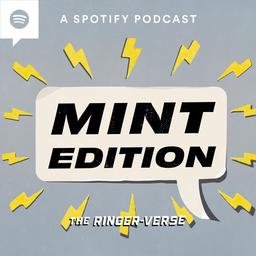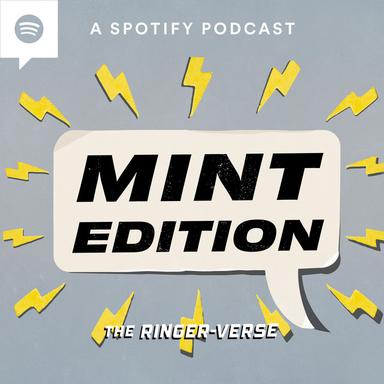Dinosaurs. Superheroes. Tom Cruise wing-walking a biplane. In the annual popularity contest that is blockbuster movie season, all of the above have fallen to a trio of cartoon pop singers. Yes, the cinematic event of the summer is KPop Demon Hunters, a Netflix animated original that’s been steadily amassing devotees for two months now, taking the streaming world (and Billboard charts) by storm. While some blockbusters opened big and fizzled fast at the multiplex, more and more people have queued up the inaugural adventures of mystically empowered girl group Huntr/x, who sell out arenas by night and vanquish monsters by later the same night.
How big is this all-ages, word-of-mouth sensation? If the Netflix metrics can be believed, enormous. It’s been no. 1 on the platform in 26 countries and within the top 10 in 93—including here in the States, where it’s placed first for seven straight weeks. It’s already the most-watched Netflix animated movie ever. By next week, it’s expected to surpass Red Notice as the streamer’s most popular movie ever, period. The plainest proof that the world has Hunter fever might be its cross-medium overthrow of the pop charts, with multiple appearances on the Billboard Top 100. As of this writing, three of its infectious rap-pop hybrids have cracked the top 10, with a whopping six more rising through the ranks further down.
KPop Demon Hunters is so popular, in fact, that it’s coming back to theaters this weekend—something Netflix, which gave the film a customarily cursory release back in June before it began streaming, never does for its originals. Billed as sing-along events, these screenings have been selling out all over the country. Don’t be shocked if the movie promptly adds a dog-days stint at the top of the box office to its growing list of unexpected achievements.
For Netflix, all of this is confirmation that the habit of throwing spaghetti against the wall to see what sticks—of buying everything and asking questions later—can pay off big time. For Sony, which actually made KPop (before selling it to Netflix), it’s gotta sting. And for Hollywood ... well, expect the industry to take the wrong lessons, as it usually does, and chase the film’s surprise ubiquity with a lot of plagiaristic imitations. Can J-Pop Vampire Slayers, or some marginally less transparent ripoff, be far off?
If there’s an actual takeaway here, something concrete to be gleaned from the sleeper success of the movie, it might lie in the alchemy of its genre pastiche. For whatever else it is—a Spider-Versian superhero riff, an anime gloss, a Josie and the Pussycats–style showbiz comedy, a star-crossed-lovers soap opera, a kiddie horror spoof—KPop Demon Hunters is first and foremost a musical, albeit one that presents its big numbers as music videos and award-show performances. What its meteoric rise suggests is that there might be a real appetite for genuinely modern song-and-dance spectacles. That is, musicals built around music that’s actually popular right now.
Lord (or Judy Garland) knows Hollywood could use some fresh insight into how to keep the genre profitable. Once an essential component of any major studio’s portfolio, the musical has become a riskier proposition in the 21st century, as tastes have trended away from MGM razzle-dazzle. Of course, hits aren’t unheard of. If nothing else, Wicked proves that you can still draw audiences in droves with the promise of Tony-approved karaoke staples. But the popularity of “Popular” and the rest of the Oz-themed songbook has to be considered more exception than rule. The public was much less receptive to stage adaptations like The Color Purple, In the Heights, and the admittedly awful Dear Evan Hansen. Even Steven Spielberg, of all gods among filmmakers, couldn’t make a box-office event out of one of Broadway’s finest, West Side Story.
And some of the movies that have made a dime off a showtune these past few years have actually hidden their musical natures. You wouldn’t really know, going just by the trailers, that either Wonka or Mean Girls (2024) was going to feature characters belting their feelings aloud. Would either have made as much if they had touted their theater-kid bona fides upfront? Maybe, maybe not, but the fact that executives felt the nervous need to sell them as less hummable entertainments suggests an unspoken truth: that “musical” remains a four-letter word for certain jaded pockets of the moviegoing hoi polloi. (Just look at how they ignored the Joker sequel, which probably should have concealed its tracklist of plaintively warbled standards.)
Again, it’s a gamble, not a certain disaster, that awaits any mogul chasing the next Wicked or La La Land or Chicago. Still, you might expect more hits and fewer misses in an era absolutely blanketed with sonic wallpaper. We’re talking about the age of parasocial pop obsession, of Spotify Wrapped, of the TikTok supercut. What could be stopping a generation that lives and breathes music, that cuts daily life into needle-drop montage, from indulging in some big-screen magic of the Vincente Minnelli variety? Why wouldn’t such a musically inclined moviegoing public go for musicals more reliably?
It could just be the music itself. With some exceptions, Hollywood is still pillaging the Broadway playbill. That, or searching for good vibrations on a radio dial tuned to yesterday’s chart-toppers. Jukebox musicals, once positioned as a hip modern alternative to the stage-to-screen variety, now look (and sound) like just another melodic blast from the past. Hell, even Moulin Rouge—Y2K’s idea of a hyper-modern musical—is about as nostalgically comfy as a wedding DJ set. Its songs, after all, were all pulled from the Top 40 past, semi-recent or ancient.
KPop Demon Hunters could have done the same. At the very least it could have borrowed from an existing library of K-pop hits—the best of BTS and Blackpink and Twice, crowded together on one Greatest Hits collection of a songbook, à la the hair-metal sampler Rock of Ages. That might have done the trick to court the target demographic, in the same way that an army of Swifties came out in big numbers to big-screen footage of their idol’s historically sold-out Eras tour. We’d still be talking about an animated musical designed to appeal to a very large, very loyal international fan base.
But KPDH is more modern still. It doesn’t just feed off the contemporary tastes of K-pop fanatics (or, at the very least, the K-pop curious). It gives them their brand-new obsession. It creates its own hits, and actually contributes to the worldwide boom to which it’s paying affectionate tribute. The songs in the movie are originals—a soundtrack of first-rate earworms inspired and performed by real K-pop stars. In that way, KPop Demon Hunters becomes a lucrative fusion: all the minivan replay value of a Mouse House sing-a-along like Encanto or Frozen, but in a style authentically molded to a global pop music, pop culture vanguard. It’s a musical that’s fully in touch with the sounds of the world it’s been released into.
That’s the trend Hollywood should chase in the wake of this movie’s record-breaking run: an earnest push to get young music fans hooked on musicals again by meeting them where they are. So long as the movie musical keeps singing the songs of the past—borrowing its showstoppers from the stage or the oldies station—it’ll remain stuck in that past, a genre on life support. KPop Demon Hunters shows there’s another way, a path to new life for the musical. It plugs right into the pop music moment, luring a hungry fandom into theaters, or at least keeping it firmly planted on the couch couch couch.

